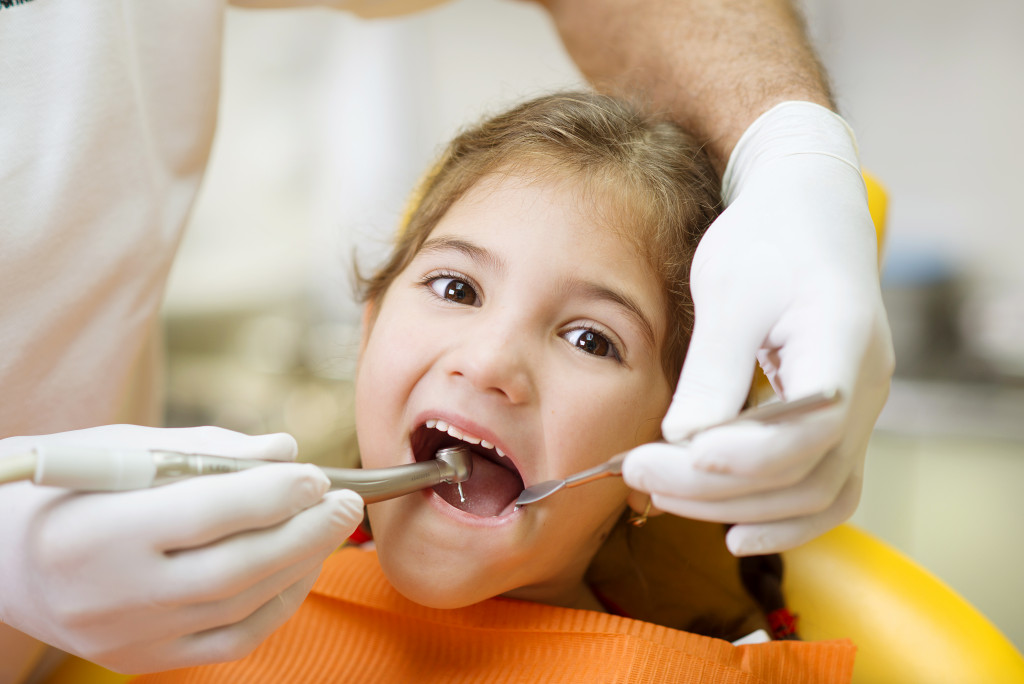- Pre-teens experience a time of rapid tooth development from ages 9 and 13.
- Parents should ensure that their pre-teen has access to a balanced and healthy diet.
- Establishing rules at home to encourage healthy oral habits is necessary for pre-teens.
- Regular checkups are important to detect potential problems.
- Orthodontic treatment should be discussed with the dentist for the best treatment options.
As children grow up, their dental needs also change. Parents of pre-teens need to be aware of the changes in their child’s oral health and any additional care they may need. Here is a guide to help parents prepare to transition into pre-teen dental care.
Tooth Development and What to Expect
Pre-teens experience a time of rapid tooth development that is essential for the formation of adult teeth. During this period, typically between ages 9 and 13, the primary teeth start to fall out and are replaced by permanent teeth. Over the course of these few years, pre-teens will develop all their adult teeth—28 in total.
Parents should expect that as their pre-teens enter this period of rapid tooth development, they may experience discomfort or sensitivity. It’s important to note that the primary teeth will be falling out and being replaced by permanent teeth, so it’s likely that your child will have a few large gaps in their smile temporarily. This is perfectly normal and should be expected.
What You Can Do As A Parent
As parents of pre-teens, there are some essential steps you can take to ensure your child’s teeth develop correctly. Taking care of their teeth during this critical period is necessary for forming healthy adult teeth. Taking these simple yet effective steps can help ensure that your pre-teen has good oral health throughout their life.
Promote Healthy Dietary Habits
Promoting healthy dietary habits during the pre-teen years is essential to maintain good oral health. The food we eat affects every aspect of our health, including our teeth and gums. Eating a balanced diet helps keep teeth strong and cavity-free while avoiding sugary snacks and drinks can help prevent tooth decay.
As parents, you are responsible for ensuring that your pre-teen has access to a balanced and healthy diet. Encouraging a variety of foods in their diet, such as fruits, vegetables, whole grains, and lean proteins, can help promote proper tooth development.
- Variety: Add different food groups to your meals and snacks to ensure your child’s getting their daily nutrient requirements.
- Moderation: No food is bad as long as they are taken in moderation. Make sure you watch over how much sugary or acidic food your child consumes.
- Balance: Prioritize creating meals focusing more on proteins, complex carbohydrates, and healthy fats.
Establish Rules At Home
Children need guidance, especially with their daily routines. Establishing rules at home will help encourage your pre-teen to form healthy oral habits that they can carry for life. Here are some guidelines you can set for them:
- Brushing twice a day with fluoride toothpaste and flossing once daily is the best way to maintain good dental hygiene.
- Encourage them to rinse their mouth with water after meals and snacks.
- Try to limit their intake of sugary snacks and drinks.

When to See A Dentist
Pre-teens are at a critical stage of oral health, and preventive care is key to maintaining healthy teeth and gums. Regular checkups with a dental professional will help detect any potential problems early on and give your child tips for good oral hygiene. Ideally, your pre-teen should see a dentist every six months or as often as the dental professional recommends.
Regular Checkups and Cleanings
During these visits, the dentist will assess your child’s oral health and provide any necessary treatments, such as sealants, fluoride, or fillings. The dentist can also advise you on how best to maintain your child’s oral health at home.
Dentist checkups and cleanings are important for pre-teens and adults alike to maintain good oral health. During a dental appointment, the dentist will first look at the patient’s mouth, looking for any signs of decay or damage to the teeth and gums. They may also use special instruments such as a mirror and probe to examine the teeth and gums. After a thorough examination, they will provide necessary fillings or fluoride treatments. Lastly, the dentist will clean by removing plaque and tartar from the teeth.
Braces and Orthodontic Treatment
Pre-teens may need braces or other orthodontic treatments to correct misaligned teeth or jaw issues like overbites or underbites. It is best to consult with an orthodontist about this before treatment begins, as there are several options available depending on what type of problem needs correcting and what kind of results you want from treatment. Some treatments can take several years, so it’s essential to start early if needed. There may also be instances where they may need their molars removed. In such cases, the dentist or orthodontist will provide your child with a complete assessment and discuss the best treatment options available.
Dental care for pre-teens is integral to helping them develop healthy habits that will last a lifetime. Regular checkups and cleanings, cavity prevention measures such as brushing and flossing regularly, limiting sugary snacks/drinks, and considering braces/orthodontic treatments are all essential aspects of preparing your pre-teen for excellent oral health throughout childhood and adulthood! If you have questions about what specific steps you should be taking concerning your child’s dental care, don’t hesitate to reach out to your dentist or orthodontist today!


